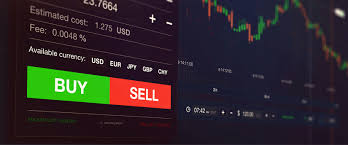
The Ultimate Guide to Forex Market Trading
The Forex market, or foreign exchange market, is one of the largest financial markets in the world, providing traders with countless opportunities. The primary purpose of this market is to allow for the buying and selling of currencies. It’s an exciting field for those who are willing to invest time and effort into understanding its complexities. In this guide, we will cover essential aspects of Forex trading, including strategies, tips, and resources such as forex market trading MT4 Forex Brokers that can aid traders in their journey.
What is Forex Trading?
Forex trading involves the exchange of one currency for another. Unlike stock market trading, where shares represent ownership in a company, Forex trading involves currency pairs, such as EUR/USD or GBP/JPY. Traders buy one currency and simultaneously sell another, hoping that the selected currency will increase in value against the other. Here, movements and trends can be analyzed to make profitable trading decisions.
Understanding Currency Pairs
Currency pairs are classified into three main categories: major pairs, minor pairs, and exotic pairs. Major pairs include currencies from the most economically stable countries, such as the USD, EUR, and JPY. Minor pairs are less commonly traded and typically involve smaller economies, such as AUD, CAD, or NZD. Exotic pairs comprise one major currency and one from an emerging market or less developed country, which can entail higher risks and volatility.
How to Get Started in Forex Trading
Entering the Forex market can be daunting, but having a structured approach can help simplify the process. Here are some steps to get you started:
- Educate Yourself: Familiarize yourself with the Forex market fundamentals. Online courses, ebooks, and articles can serve as great resources.
- Choose a Reputable Broker: Select a broker that meets your needs. Look for brokers with good reputations, low fees, and a reliable trading platform.
- Open a Trading Account: After finding the right broker, open a trading account. Most brokers offer demo accounts, which allow you to practice without risking real money.
- Develop a Trading Plan: A solid trading plan outlines your strategy, risk tolerance, and objectives. Stick to your plan and regularly assess its effectiveness.
- Start Trading: Begin trading with a small amount of capital until you build confidence and experience.

Trading Strategies in Forex Market
There are various strategies that traders utilize in the Forex market. Here are some popular ones:
1. Day Trading
Day trading involves executing multiple trades within a single day. Traders look to capitalize on short-term market movements, typically closing their positions by the end of the trading day to avoid overnight exposure.
2. Swing Trading
Swing traders hold positions for several days or weeks. This strategy aims to capture price changes or swings over a longer time frame. Swing trading suits those who cannot dedicate an entire day to monitoring the market.
3. Scalping
Scalping is a strategy focused on making small profits from minor price changes. Scalpers may open and close dozens of trades in a single day, often relying on high leverage to amplify their returns. This approach requires quick decision-making and a deep understanding of market trends.
4. Position Trading

Position traders often hold trades over longer periods, from weeks to months, based on fundamental analysis. This strategy requires patience and understanding of economic fundamentals and their impacts on currency values.
Risk Management in Forex Trading
Managing risk is a crucial aspect of Forex trading that can make or break a trader’s success. Here are some key principles of risk management:
- Use Stop-Loss Orders: A stop-loss order helps to automatically close a trade at a predetermined loss level to mitigate potential losses.
- Limit Your Leverage: While leverage can amplify gains, it also increases potential losses. Use leverage carefully to avoid significant losses.
- Diversify Your Portfolio: Spread your investments across different currency pairs or markets to reduce risk exposure.
- Set a Risk-Reward Ratio: Determine an acceptable risk-reward ratio before entering trades to ensure potential rewards justify the risks taken.
Emotional Discipline in Trading
Trading can be an emotional rollercoaster, and success depends on your ability to manage your emotions. Fear, greed, and frustration can cloud judgment and lead to poor decision-making. Here are some tips for maintaining emotional discipline:
- Establish a set of rules based on your trading plan, and stick to them.
- Take breaks when feeling overwhelmed or emotional.
- Conduct regular self-reflection to assess your mindset and decision-making process.
Final Thoughts on Forex Market Trading
The Forex market presents ample opportunities for both novice and experienced traders. However, it is essential to approach this market with a solid understanding of its mechanics, effective strategies, and robust risk management practices. Traders should continuously educate themselves to adapt to changing market conditions and further enhance their skills. By focusing on discipline, education, and ongoing learning, individuals can navigate the Forex market to achieve their trading goals.
